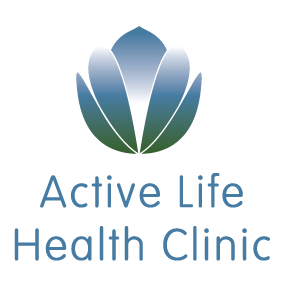 IBD is short for Inflammatory Bowel Disease, and it includes chronic inflammation at any or all parts of the bowels. The most common types of inflammatory bowel disease are Crohn’s and ulcerative colitis, but inflammation of the rectum is also possible, and it’s called proctitis.
IBD is short for Inflammatory Bowel Disease, and it includes chronic inflammation at any or all parts of the bowels. The most common types of inflammatory bowel disease are Crohn’s and ulcerative colitis, but inflammation of the rectum is also possible, and it’s called proctitis.
Few people want to talk about their challenges with an IBD. It simply isn’t accepted as a topic easily discussed in public. But, recently someone asked me to write about inflammatory bowel disease, in particular proctitis, as it’s something that she suffers from.
* If you want to read more about Crohn’s or ulcerative colitis, check out my blog Ulcerative Colitis and Crohn’s or my article in 24 Hours, Time to Get Gutsy.
Proctitis can be either acute (short-lived) or chronic (long lasting), and it can cause rectal pain, frequent or continuous sensation of needing to have a bowel movement, rectal bleeding, diarrhea, mucus in stool, and pain in the left side of the abdomen. Diagnosis can involve blood tests, stool tests, and a scope.
Causes of the Inflammatory Bowel Disease Proctitis
About a third of the people with Crohn’s or ulcerative colitis will have proctitis.
Sexually transmitted infections—including gonorrhea, chlamydia, genital herpes, and HIV—particularly from anal intercourse, is one of the risk factors for proctitis, so it’s important to use protection.
Other types of infection that can result in proctitis include foodborne infections like salmonella, campylobacter, and shigella. Antibiotic use may also make us more susceptible to infection as it destroys the good bacteria in our gut, allowing harmful bacteria to flourish. Probiotic supplementation and the consumption of naturally fermented foods rich in good bacteria can help diminish the risk by rebalancing our gut flora.
Radiation therapy for cancer treatment in areas close to the rectum (such as prostate or ovarian cancer) can also cause proctitis. This can happen during radiation therapy and last for months after, or even occur years after treatment.
Treatment of Proctitis
Obviously, if the cause of the proctitis is an infection, that will need to be treated. Antibiotics may be the appropriate course of treatment, but remember to take your probiotics as well. Time them away from when you take the antibiotics. Yogurt is not enough. Yogurt and other fermented foods are helpful for general promotion of good bacteria in the gut, but antibiotics are powerful drugs, so you’ll need to take a probiotic supplement to counter the destruction of all the good bacteria.
Probiotics are a good treatment option in general for digestive disorders, so talk with a health practitioner about your best choices.
If the infection is viral, like herpes, you may need to take an antiviral medication. One natural option for herpes treatment is the amino acid l-lysine. Again, it’s best to talk with the right health practitioner for assessment.
As the “itis” component of the word proctitis indicates, this is an inflammatory disease, so taking care of the inflammation is key. Natural anti-inflammatories include turmeric (curcumin), bromelain, and fish oils. It’s also important to avoid foods that are likely to trigger inflammation, including refined sugars, processed fats, chemically-laden foods, caffeine, alcohol, carbonated drinks, and too many animal meats. Spicy foods, seeds, popcorn, raw foods, and foods with sorbitol in it may also be triggers for proctitis and other IBDs.
Traditional Chinese Medicine and Proctitis
TCM always assesses each person individually. The best TCM is not a “cookie cutter” treatment with the same acupuncture points, herbal formula, or nutritional advice being doled out to every person with the same medical diagnosis. In fact, treatment plans can vary quite widely for the same disease because the people suffering are all quite different.
Nevertheless, there are some patterns that we do commonly see. For example, inflammatory issues, especially when acute or in a flare, often show signs of Heat, so we recommend avoiding hot spices, stimulants, alcohol, and excessive exercise (light and moderate are still recommended, depending on the severity). Those who’ve been struggling with a digestive disorder (or most any chronic health issue, really) for a long time, probably have a number of deficiencies–areas of weakness. For those, we may recommend herbs that help strengthen the body, including ginseng and reishi or cordyceps mushrooms. Juicing may be appropriate for those with more Heat signs, while soups and stews and slow cooked meals may be recommended for those with more Cold. Both are more easily digested than simple raw foods.
Acupuncture can help reduce inflammation, relieve pain, and calm the nervous system to support healing. And, don’t worry, the needles are not done locally.
If you or someone you know has proctitis or any other IBD or digestive disorder, contact me if you have questions on how to treat it. No need to suffer in silence.
